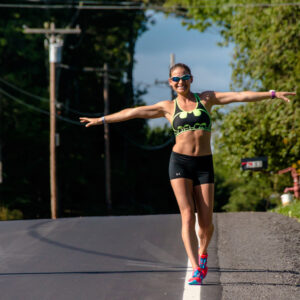 This blog was a long time coming, and is the result of things I’ve witnessed over the years – but especially during the pandemic. My guess is during the pandemic fitness enthusiasts are bored and perhaps looking to break into the training/coaching world, or simply want to connect with others through their passions. Their intentions are good, and some do offer solid advice. But for every enthusiast who may share something that’s overall harmless and potentially helpful, they’ve muddied the water with who is actually qualified to post as an expert.
This blog was a long time coming, and is the result of things I’ve witnessed over the years – but especially during the pandemic. My guess is during the pandemic fitness enthusiasts are bored and perhaps looking to break into the training/coaching world, or simply want to connect with others through their passions. Their intentions are good, and some do offer solid advice. But for every enthusiast who may share something that’s overall harmless and potentially helpful, they’ve muddied the water with who is actually qualified to post as an expert.
While it’s harmless for runners/fitness enthusiasts to share things they love – a new running bra, a spin bike they love, a new tracking app. – it’s definitely not okay for enthusiasts to post workout plans, tips on form, etc. It’s super easy to cross that line without realizing.
Example: Your friends has taken yoga classes 2X week for the last 5 years. Despite her history, she’s not a yoga instructor and has not taken the required 500 hour course to be one. Of course we’d assume she knows enough to offer some basic tips – but that assumption is the problem. Maybe that friend, despite their enthusiasm and love for yoga, may actually really not be great – or understand the full methods of the practice. They are not qualified to teach a yoga class – and therefore should not be offering yoga advice on their social media platforms, or to their close friends.
Entrusting your body with someone else’s guidance and expertise should be taken seriously. You wouldn’t go to a doctor without the required credentials, and you probably wouldn’t (and definitely shouldn’t) take medical advice from someone who’s unqualified. The good news is it’s pretty easy to find out if someone has graduated from medical school and holds the appropriate credentials. Things become really muddy in the fitness industry.
What’s true about that yoga example is literally true for ALL other sports and fitness activities – including running. Running injuries are statistically FAR more common than yoga injuries – so please PAUSE and think about what damage those unqualified posts can do.
Fitness professionals at a very minimum have the following:
- INSURANCE (this is a big one, folks!)
- Waivers/releases signed be clients BEFORE training or advice is given.
- An established business – in the form of an LLC, or they are employed by a gym or studio.
- Certifications in their field. This could be a certificate in Personal Training, Yoga, Pilates, Running, etc. ***Note that some certification are truly not hard to obtain. For example, it takes literally a 2-day course and a multiple question exam to obtain the USATF or RRCA level 1 running coach certifications. That’s NOT hard, ya’ll. My point: if it’s THAT easy to get certified, why the heck would you take advice from someone not certified?
- So I’d expect MORE than one certification, and on the race course/in that sport experience.
 If you go to social media for fitness advice and tips, please be cautious! Keep in mind that even sound advice may not be the right advice for you in that moment. A doctor isn’t going to diagnose me over Instagram DMs when I ask for advice. That doctor knows they need ample information about me before they can offer a diagnosis. And while I hate to say it, just like all doctors aren’t great (despite their MD), the same is true for personal trainers/coaches – their certifications and platform doesn’t make them the best or even good.
If you go to social media for fitness advice and tips, please be cautious! Keep in mind that even sound advice may not be the right advice for you in that moment. A doctor isn’t going to diagnose me over Instagram DMs when I ask for advice. That doctor knows they need ample information about me before they can offer a diagnosis. And while I hate to say it, just like all doctors aren’t great (despite their MD), the same is true for personal trainers/coaches – their certifications and platform doesn’t make them the best or even good.
Okay, so you are looking for fitness professionals on social media but want to make sure they know their stuff – what should you look for?
- The account should have a link to their professional website. Like the certifications, developing a website is easy and necessary for a true fitness professional. If they don’t have one, and don’t have much of a history in a google search, I’d move on.
- Relevant content. Their account and posts should overall celebrate what you are looking for! You’ll be sure to get the informative and motivational posts you are looking for, and you can probably trust them.
- Credentials. They may not be on their page if they have a website. If they don’t have a website, they may list their certs on their profile.
- They are not primarily an influencer or pumping out ads. Fitness professionals are targeted constantly to “sell” products. The odds are good if you see an overwhelming amount of ads that the mission of that professional essentially chases the fad money. A trainer who will slap their name or support behind random products will probably not be an example of good science and training principals.
- The account should give advice that serves the masses. And this is important, because fitness is incredibly individual. A coach suggesting everyone should do an elimination diet, or a run streak, or lift only with low weights, etc – run for the hills. (Not literally, y’all.) What’s right for one person could be catastrophic for the next. Remember that a social media post is for the masses, and you want to follow fitness professionals who are thoughtful and aware of this.
- The account should promote a healthy relationship with fitness. Overall, the activity should be celebrated by the account and not viewed as punishment for bad nutrition – for example. I’d also tread lightly with accounts that emphasize a specific diet – your needs, likes, etc will be different than the next person.
- That person/account should be clearly making good choices. For example, if the account belongs to a running coach who comes across as motivational, positive and talented – but is chronically injured and still showing up to races and posting about the injuries and her races – that’s not someone I’d trust as an expert. Without meaning to, they are promoting bad behavior that none of us should mimic. They mean well, but that’s not enough. On the flip side, if the account belongs to an injured coach and they are sharing their recovery and rehabilitation and offering solid advice regarding addressing injuries – that’s a coach worth following!
Social media can be an incredible tool for learning about fitness, health, running, yoga – you can find it all. It’s really exciting just how much is at our finger tips. Professionals from around the world are suddenly accessible. As a coach, I’ve loved connecting with athletes from around the globe, and have built relationships and coached athletes who initially found me on social media. It can be a great launch pad, and one I feel lucky to have. I’ve met some amazing fellow coaches and have created connections with them, and have gained perspective by following professional athletes. So despite the muddiness of the industry on social media, you can find some great resources out there.




Speak Your Mind